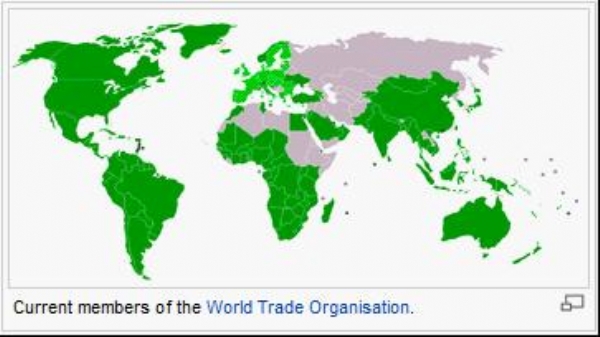Address: Economic Development Zone, Xintai City, Shandong ProvinceŻ¼China
Phone:+86-538-7058238 +86-538-7069876
Fax: +86-538-7069876
Email: admin@tfsteelpipe.com
MSN: sdtfgy@hotmail.com
Traditionally trade was regulated through bilateral treaties between two nations. For centuries under the belief in mercantilism most nations had high tariffs and many restrictions on international trade. In the 19th century, especially in the United Kingdom, a belief in free trade became paramount.[citation needed] This belief became the dominant thinking among western nations since then. In the years since the Second World War, controversial multilateral treaties like the General Agreement on Tariffs and Trade (GATT) and World Trade Organization have attempted to promote free trade while creating a globally regulated trade structure. These trade agreements have often resulted in discontent and protest with claims of unfair trade that is not beneficial to developing countries.
Free trade is usually most strongly supported by the most economically powerful nations, though they often engage in selective protectionism for those industries which are strategically important such as the protective tariffs applied to agriculture by the United States and Europe.[citation needed] The Netherlands and the United Kingdom were both strong advocates of free trade when they were economically dominant, today the United States, the United Kingdom, Australia and Japan are its greatest proponents. However, many other countries (such as India, China and Russia) are increasingly becoming advocates of free trade as they become more economically powerful themselves. As tariff levels fall there is also an increasing willingness to negotiate non tariff measures, including foreign direct investment, procurement and trade facilitation.[citation needed] The latter looks at the transaction cost associated with meeting trade and customs procedures.
Traditionally agricultural interests are usually in favour of free trade while manufacturing sectors often support protectionism.[citation needed]This has changed somewhat in recent years, however. In fact, agricultural lobbies, particularly in the United States, Europe and Japan, are chiefly responsible for particular rules in the major international trade treaties which allow for more protectionist measures in agriculture than for most other goods and services.
During recessions there is often strong domestic pressure to increase tariffs to protect domestic industries. This occurred around the world during the Great Depression. Many economists have attempted to portray tariffs as the underlining reason behind the collapse in world trade that many believe seriously deepened the depression.[citation needed]
The regulation of international trade is done through the World Trade Organization at the global level, and through several other regional arrangements such as MERCOSUR in South America, the North American Free Trade Agreement (NAFTA) between the United States, Canada and Mexico, and the European Union between 27 independent states. The 2005 Buenos Aires talks on the planned establishment of the Free Trade Area of the Americas (FTAA) failed largely because of opposition from the populations of Latin American nations. Similar agreements such as the Multilateral Agreement on Investment (MAI) have also failed in recent years.
Risk in international trade
While trade barriers and unfair practices take many forms, the most common examples are listed below:
Intellectual property infringement - including copyright, patent and trademarks. Lack of competitive bidding for foreign government tenders. Competition from unfairly traded (i.e., dumped or foreign government subsidized) imports. Unfair and trade distortive subsidies provided by foreign governments to overseas competitors. Foreign trade remedy investigations conducted inconsistent with international obligations. Burdensome certification and testing requirements that are not required by domestic manufacturers. Increasing imports and unfair competition. Concerns over other foreign trade barriers to export or investment.
next record:The overall situation of the steel market